Mindfulness-based Stress Reduction | MBSR
About MBSR
Through meditation practices, class exercises, and home assignments, this 8-week experiential programme takes you on a discovery journey into your own mental habits and patterns of behaviour.
You become more aware of automatic and reactive patterns that cause and intensify feelings of stress, and learn to take an active role in improving your own wellbeing and reshaping your life for the better. You learn to apply mindfulness in everyday life.
An extensively researched programme that stems from the late 1970s. Developed by Jon Kabat-Zinn, Center for Mindffulness | University of Massachusetts Medical Center, to reduce distress and suffering.
What to expect
Formal Practice: Body Scan, Mindful Movement, Sitting Meditation
Journaling exercises to deepen awareness of the present moment
An exploration of stress theory and the physiological & emotional effects of stress
Integration of mindfulness in daily life: e.g. when you feel overwhelmed, while listening and speaking
Facilitated inquiry to deepen experience
Group sharing & reflections
A ‘Silent Day’ to deepen the practice and get acquainted with new practices (e.g. walking meditation, loving-kindness)
Regular home-practice (ca. 45 min per day)

MBSR 8-week Themes
1 Exploring Mindfulness
2 Perceiving the World & Ourselves
3 Being at Home in our own Body
4 What is Stress?
5 Stress - Reaction vs. Response
6 Mindful Communication
Day of Mindfulness (Silent Day)
7 Taking Care of Ourselves
8 Looking Backward, Going Forward
How MBSR can benefit you
MBSR can help improve your wellbeing by strengthening your inner resilience and reducing distress. Personal outcomes, however, differ from person to person.
Ability to respond to stress and other challenges with grace and composure
Improved concentration and clarity
Relief in dealing with difficult emotions (anxiety, irritability ..)
Improved skill in dealing with worrying thoughts
Ability to regulate one's own physiological state through relaxation
Improved ability to cope with pain and illness
Improved interpersonal communication and more fulfulled relationships
Transforming towards living with a sense of choice and purpose
Course Structure
Each of the 8 sessions is typically 2,5 hours in a small group setting. The Silent Day of practice, usually held on a Saturday or Sunday, takes place between Weeks 5 & 8 and is a form of a mini silent retreat, that allows you to deepen your practice.
Home Practice
As this is a skills-development programme, the course requires commitment of about 45 minutes of home practice per day. Please ensure that you are able to dedicate this time. Handbook and audio-guides, to support your home practice, will be provided.
Pre-Interview
After registration, an individual pre-course interview will be set up to shed more light on the programme and understand your motivation for joining. This allows us to assess whether the programme is suited to your present life circumstances. This is a complimentary session.



